
Sandra Mills
Associate researcher, faculty of arts, cultures and education, University of Hull
Sandra Mills holds a PhD from the University of Hull. Her thesis examined representations of the ‘living’ doll in contemporary horror literature and film. She has published on the work of Angela Carter, Carlo Collodi, Ramsey Campbell, and Robert Coover. Her wider research interests include literary and visual depictions of the supernatural, adaptation and intertextuality, ‘based on a true story’ horror narratives, and the digital humanities. She works in data analytics and is intrigued by intersections of technology and Gothic Studies.
Less ![]()
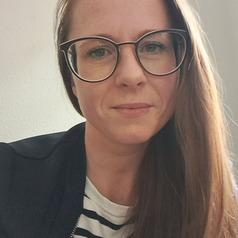
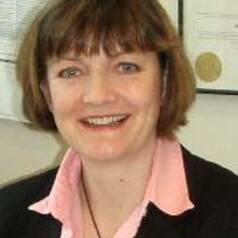
Sandra Sirrs
Clinical Professor, UBC Division of Endocrinology, University of British Columbia
I am a clinical professor in the UBC Division of Endocrinology. I have focused my career on the care of adults with rare inherited metabolic disorders. I have been consulted by federal agencies including Health Canada and CADTH on issues around high cost drugs for rare diseases. I also advise the BC provincial government on issues around rare diseases and high cost drugs.
Less ![]()
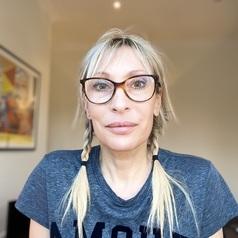
Sandra Sunram-Lea
Professor in Biological Psychology, Lancaster University
My research background is in biological psychology/neuroscience and I am interested in biological factors and mechanisms which affect human cognition and behaviour across the lifespan.
Much of my research has focused on the effects of glucose administration and glucose regulatory mechanisms on human cognition. Through grant-funded collaborations with other centres I have also investigated the cognitive effects of glucose regulatory mechanisms with clinical populations such as diabetics. In addition, I have conducted investigations into the neurocognitive effects of energy drinks, nutritional supplements and food components.
I am also interested in evaluation of the behavioural and physiological effects of emotions and stress, and more specifically, how this affects cognitive performance.
My work has been funded by national and international competitive grants (BBSRC, ESRC, JDRF) and industry.
Less ![]()
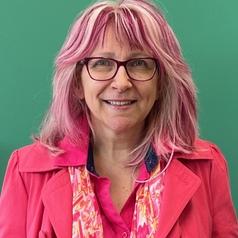
Sandra Thom-Jones
Honorary Professor, University of Wollongong
Professor Sandra Thom-Jones is the author of Growing in to Autism (MUP, 2022) and Autistics in Academia (Cambridge University Press, 2024).
Sandra works as a consultant providing a range of services for autistic people – as well as professional development, research and consultancy services for education, employment and healthcare providers – through her website: www.autisticprofessor.com
She is also an Honorary Professor at the University of Wollongong, a creative writer, and a passionate advocate for the inclusion of autistic people in all aspects of society.
Less ![]()

Sandra van der Laan
Professor of Accounting, University of Sydney
Sandra van der Laan joined Sydney University from Wollongong in 2001 after a career change in the 1990s. She has formal qualifications in accounting, finance and education.
Sandra's research interests lie in accounting in two broad strands of research. The first centres on accounting as a social discourse and accounting as a mechanism to discharge accountability. As such, she has been researching in the areas of social accounting and ethical investment.
Sandra's second strand of research is centred on her PhD research. Her thesis, entitled 'An Ineffective (De)regulatory Initiative: The Australian Class Order Deed of Cross Guarantee' examines the economic consequences of the financial reporting regulation that was first introduced in 1986. This has led to an interest in the regulation and reporting for corporate groups more generally. She has published her research in a number of top ranking international journals such as Accounting, Auditing and Accountability Journal, Journal of Business Ethics and Critical Perspectives on Accounting.
Less ![]()
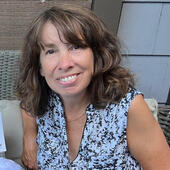
Sandra L. Robinson
Professor, UBC Sauder School of Business, University of British Columbia
Less ![]()
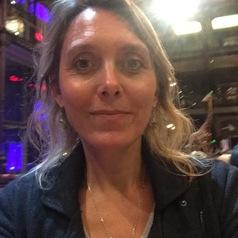
Sandrine Aragon
Chercheuse en littérature française (Le genre, la lecture, les femmes et la culture), Sorbonne Université
Enseignante en FLE - Langue Française / SIAL Sorbonne Université
Animatrice d'ateliers d'écriture. Agrégée et docteur en littérature et civilisation françaises
Thèse : Sandrine Aragon, "Des liseuses en péril, images de lectrices dans les textes de fiction (1656-1856) de La Prétieuse de l'abbé de Pure à Madame Bovary de Flaubert", Paris Honoré Champion, 2003
Recherches sur la lecture, les femmes, les femmes célèbres dans le monde littéraire et les grandes voyageuses, les amazones, le genre, l'accès des femmes à la connaissance.
Sandrine Aragon (Dir), Expatriées, 2013.
Less ![]()
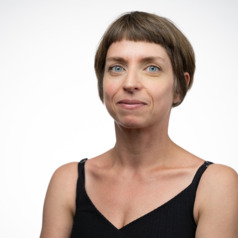
Sandrine Benoist
Enseignante-chercheuse, Université d'Orléans, IAE Orléans
Sandrine Benoist est enseignante-chercheuse en Sciences de gestion et du management à l'IAE Orléans / Université d'Orléans (France, Loiret).
Elle est affiliée au laboratoire de recherche Vallorem (VAL de LOire REcherche en Management) et membre de l'axe de recherche "Management Stratégique des Hommes et des Projets".
Elle consacre depuis 2019 ses recherches à des agriculteurs et agricultrices.
Dans le cadre de sa thèse de doctorat, elle a suivi pendant plus de quatre ans des agriculteurs de la région Centre-Val de Loire à travers une étude qualitative à caractère longitudinal.
Elle s'intéresse à un antécédent du stress et cherche à comprendre pourquoi et comment les agriculteurs travaillent, tiennent et résistent.
Comment "réarmer" les agriculteurs et leur permettre de préserver et développer les conditions d'une bonne santé psychologique et professionnelle ?
Plus globalement, elle s'intéresse aux conditions d'un travail soutenable dans un contexte de crises et de tensions ainsi qu'aux comportements innovants.
Elle s'intéresse également aux pratiques professionnelles et notamment agroécologiques des agriculteurs.
Elle soutiendra prochainement sa thèse de doctorat intitulée : "Travailler, tenir, résister en agriculture : déterminants et dynamiques des tensions de rôle, stratégies et ressources" à l'Université de Tours (France, Indre-et-Loire).
Less ![]()
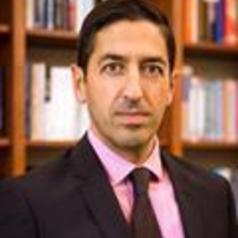
Sandro Galea
Dean, School of Public Health, Boston University
Dr Galea is a physician and an epidemiologist. He is Dean and Professor at the Boston University School of Public Health. Prior to his appointment at Boston University, Dr Galea served as the Anna Cheskis Gelman and Murray Charles Gelman Professor and Chair of the Department of Epidemiology at the Columbia University Mailman School of Public Health where he launched several new educational initiatives and substantially increased its focus on six core areas: chronic, infectious, injury, lifecourse, psychiatric/neurological, and social epidemiology. He previously held academic and leadership positions at the University of Michigan and at the New York Academy of Medicine. In his own scholarship, Dr Galea is centrally interested in the social production of health of urban populations, with a focus on the causes of brain disorders, particularly common mood-anxiety disorders and substance abuse. He has long had a particular interest in the consequences of mass trauma and conflict worldwide, including as a result of the September 11 attacks, Hurricane Katrina, conflicts in sub-Saharan Africa, and the American wars in Iraq and Afghanistan. This work has been principally funded by the National Institutes of Health, Centers for Disease Control and Prevention, and several foundations. He has published over 500 scientific journal articles, 50 chapters and commentaries, and 9 books and his research has been featured extensively in current periodicals and newspapers. His latest book, co-authored with Dr Katherine Keyes, is an epidemiology textbook, Epidemiology Matters: a new introduction to methodological foundations. Dr Galea has a medical degree from the University of Toronto, and graduate degrees from Harvard University and Columbia University. He was named one of TIME magazine’s epidemiology innovators in 2006. He is past-president of the Society for Epidemiologic Research and an elected member of the American Epidemiological Society and of the Institute of Medicine of the National Academies of Science. Dr Galea serves frequently on advisory groups to national and international organizations. He has formerly served as chair of the New York City Department of Health and Mental Hygiene’s Community Services Board and as member of its Health Board.
Less ![]()
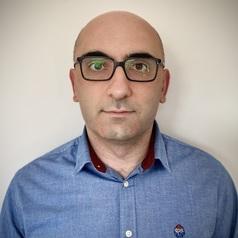
Sandro Shelegia
Associate Professor, Department of Economics and Business, Universitat Pompeu Fabra
Sandro Shelegia is an associate professor at the Department of Economics and Business - Universitat Pompeu Fabra, an affiliated professor at Barcelona School of Economics, and CEPR research fellow. He received his doctorate from Universitat Pompeu Fabra in 2009 and served as an assistant professor at the University of Vienna from 2009 to 2015. In 2022 he received an ERC consolidator grant for his project Foundations for Antitrust and Policy on Digital Platforms.
Less ![]()
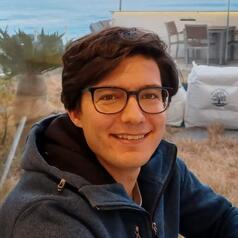
Sandro Tacchella
Assistant Professor in Astrophysics, Kavli Institute for Cosmology, Cambridge, Department of Physics, University of Cambridge
Sandro Tacchella is an astrophysicist working at the Department of Physics (Cavendish Laboratory) and at the Kavli Institute for Cosmology of the University of Cambridge. Before joining the University of Cambridge in 2022, he was Assistant Professor at the Physics Department of UNIST in Ulsan, Korea. From 2017-2021, he was a CfA Fellow at the Harvard-Smithsonian Center for Astrophysics in Cambridge, USA. He has received his Ph.D. from ETH Zurich (Switzerland) in 2017.
Sandro's long-range scientific goal is to understand the physics of the formation and evolution of galaxies and black holes across cosmic time. Specifically, he investigates the physical mechanisms that govern the formation of the first galaxies in the early universe, the buildup of the bulge and disk components in galaxies, and the cessation of star formation in massive galaxies. He exploits cutting-edge multi-wavelength observational data obtained with some of the most advanced telescopes on ground and in space. He uses and develops analytical and cosmological numerical models to shed light on the physical properties of galaxies. Sandro is also heavily involved in the new James Webb Space Telescope, playing a key role both in the data processing of the NIRCam instrument and in projects aimed at detecting galaxies formed in the early Universe and at characterising their primeval properties.
Less ![]()
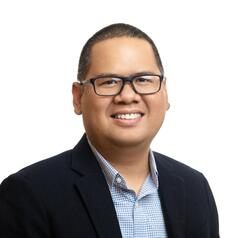
Sandro W. Lubis
Earth Scientist, Pacific Northwest National Laboratory
Dr. Lubis is an atmospheric scientist with a broad interest in atmospheric dynamics and climate variability and change. The main focus of his work is to advance the fundamental understanding of large-scale atmospheric processes that impact extratropical and tropical weather and climate. Potential topics of interest include, but are not limited to, the dynamics of large-scale circulation (such as sudden stratospheric warmings, blockings, annular modes, stationary waves, planetary wave reflection, and wave breaking), tropical meteorology (including moisture modes, MJO, equatorial waves, and cold surges), and extreme weather.
Before joining PNNL in the summer of 2022, Dr. Lubis was a Postdoctoral Researcher working with Prof. Noboru Nakamura (University of Chicago, USA) and Prof. Pedram Hassanzadeh (Rice University, Houston, USA). Dr. Lubis received his Ph.D. in Atmospheric Sciences from GEOMAR - Helmholtz Centre for Ocean Research Kiel and the University of Kiel, Germany, under the supervision of Prof. Katja Matthes and Prof. Nili Harnik. Outside of work, he enjoys listening to and watching classical music concerts (a big fan of Bach, Sibelius, Paganini, Shostakovich, and Tchaikovsky), traveling, and exploring nature.
Less ![]()
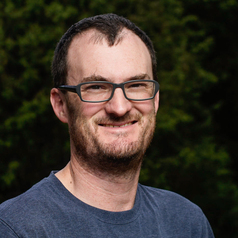
Sandy Boucher
Lecturer in the Philosophy of Science, University of New England
I am Lecturer in the Philosophy of Science at the University of New England, NSW Australia. My research interests are mainly in the philosophy of biology (especially functions and teleology, the units of selection, species, natural kinds, macroevolution and paleobiology) and general philosophy of science (especially the scientific realism debate), but I also work on issues in metaphilosophy and epistemology. I have published several papers on empiricism and the concept of a philosophical stance. Current research projects include work on pragmatism in the scientific realism debate; arguments for realism about the units of selection; the role of values in science; and naturalised metaphysics. I received my Ph.D from the University of Melbourne in 2012 (supervisor Greg Restall), thesis title 'Empiricism, Metaphysical Stances the Philosophy of Biology'. After receiving my Ph.D my first position was as a researcher on the IARPA (Intelligence Advanced Research Projects Activity) Critical Thinking and Argument Mapping Project at the University of Melbourne. Before coming to UNE I taught at the University of Connecticut, University of Melbourne, and La Trobe University.
Less ![]()
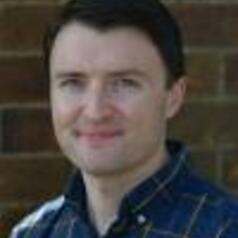
Sandy Hetherington
Plant Evolutionary Biologist, The University of Edinburgh
The aim of my research is to understand the key innovations that enabled the conquest of the land by plants. In my group The Molecular Palaeobotany and Evolution Group we make the most of all available data to shed light on the origin and evolution of key innovations during plant evolution including evidence from fossils, studies of development from living species and comparative omics approaches. Using this interdisciplinary approach can shed light on the evolution of land plants in a way that would not be possible from isolated approaches alone.
Current research interests:
400 Million Years of Food Transport in Plants: unearthing the origin, diversity and genetic toolkit of vasculature. Plants require an internal conducting network to transport food and water around their bodies. This conducting network is termed vasculature and consists of two tissues, water conducting xylem and food conducting phloem. The acquisition of these tissues during plant evolution was key for the origin of trees and crops from tiny moss-like ancestors. Despite the importance of the phloem for transporting sugars throughout plants we know almost nothing about its evolution or how it may respond to climate change. The aim for my fellowship is to study the evolution of the phloem over its 400 million year history.
Less ![]()
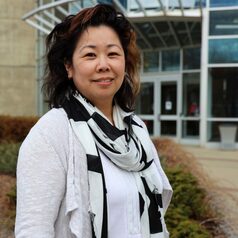
Sandy Jung
Professor, Department of Psychology, MacEwan University
Dr. Sandy Jung is a full professor in the Department of Psychology and is the Associate Dean, Research. She maintains an active research program in her Psychology Crime Lab (PCL@M) that focuses on the prevention of sexual assault, child sexual exploitation and intimate partner violence and is funded by both internal and major external grants. She has numerous peer-reviewed publications in the field of forensic psychology, often co-authored with her students and her collaborators in law enforcement, forensic mental health and other academic institutions in Canada, the U.S. and other parts of the world.
Dr. Jung has taught abnormal, forensic and clinical psychology and actively provides supervision of honours and advanced research students. She was a recipient of MacEwan’s Distinguished Teaching Award in 2017, Distinguished Research Award in 2018, and the Board of Governors Research Chair role from 2018 to 2020. She was also awarded CAFA’s Distinguished Academic Award in 2021.
Prior to her current academic position, Dr. Jung was a forensic psychologist at a forensic outpatient clinic in Edmonton. She serves on the editorial board for the journals, Sexual Abuse, Sexual Offending: Theory, Research, and Prevention and Canadian Psychology. She is an assistant adjunct professor in the Department of Psychiatry at the University of Alberta and is a registered forensic psychologist.
Less ![]()
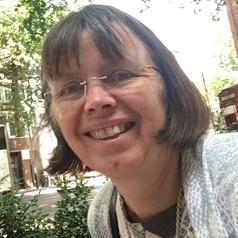
Sandy Oliver
Professor of Public Policy, UCL
Sandy Oliver is Professor of Public Policy at University College London. For thirty-five years, her interests have focused on the interaction between people making decisions together in their professional and personal lives. Alongside this, she has been developing methods to collate knowledge from whole bodies of research – systematic reviews – not just single studies to inform those decisions. This work has combined the strengths of two social movements: evidence-informed everything and inclusive approaches to research and decision making. It has taken her on a journey spanning community activism, public sector outreach, socio-economic development, research methodology, indigenous knowledge, and blended ways of learning. Sandy consistently looks for the big picture, by synthesising knowledge from various academic traditions and from people who see issues from different perspectives.
Less ![]()

Sanghamitra Bandyopadhyay
Professor of Development Economics , Queen Mary University of London
Less ![]()
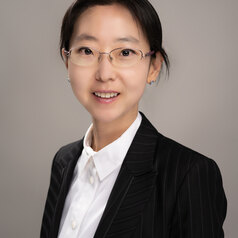
Sanghee Park
Associate professor at O'Neill Indianapolis, Indiana University
I am an Associate Professor at the O'Neill School of Public and Environmental Affairs, Indiana University Indianapolis. My research areas are within public administration, public policy, and political science, focusing on how public organizations work to achieve intended goals and/or make a difference in people’s lives.
Less ![]()
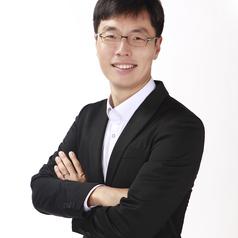
Sanghyub John Lee
Professional Casual Staff, University of Auckland, Waipapa Taumata Rau
Sanghyub Lee is a PhD graduate from the University of Auckland, with a research focus on AI emotion detection models. His interdisciplinary research bridges artificial intelligence, machine learning, and emotional psychology, aiming to enhance the way AI understands and interprets human emotions. Sanghyub’s work has explored innovative methods to synchronize socially agreed and self-reported emotions using big data, resulting in groundbreaking developments in emotion detection models that have wide applications, from improving human-computer interactions to supporting individuals with communication difficulties, such as those with autism.
Lee’s research integrates AI with real-world emotional contexts, contributing to more sophisticated and empathetic AI systems. His academic journey has led to numerous publications and awards, reflecting his influence in both AI and emotional cognition research. His interdisciplinary approach allows him to apply insights from marketing, psychology, and computer science, advancing the field of emotion recognition and creating AI models that respond more intuitively to human emotions.
Less ![]()
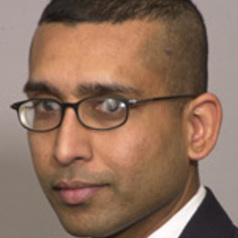
Sanjay Goel
Sanjay Goel is an Associate Professor in the Information Technology Management Department (School of Business) at the University at Albany, SUNY. He is also the Director of Research at the New York State Center for Information Forensics and Assurance at the University. Before joining the university, he worked at the General Electric Global Research Center. Dr. Goel received his Ph.D. in Mechanical Engineering in 1999 from Rensselaer Polytechnic Institute.
His current research interests include security & privacy that focus on information security along with privacy behavior; innovative education and pedagogy; and also security models i.e. biological models, risk models, and security policies. He also conducts research on forensics and cybercrime as well as on critical infrastructure, the first explores three fields: copyright and media piracy; botnets; and networks forensics. The second focuses on smart grid, including privacy in smart grid data analytics; impact of security and terrorism on financial markets; resilient transportation; and resilient service oriented architecture. Dr. Goel research interests also include hardware Trojans and secure chip design, and cyberwarfare.
He is invited to present seminars at several conferences in information security with topics including, wireless security, hacking, botnets, etc. and has several publications in leading conferences and journals. Dr. Goel teaches several classes including, Computer Networking & Security, Information Security Risk Analysis, Security Policies, Enterprise Application Development, Database Design and Java Language Programming.
Less ![]()
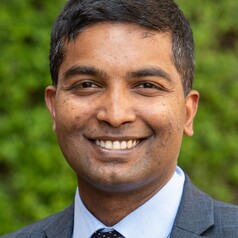
Sanjay Ramakrishnan
Clinical Senior Lecturer and Respiratory Physician, The University of Western Australia
Dr Sanjay Ramakrishnan is a respiratory physician and researcher. His research focus is on asthma and COPD exacerbations, specifically improving biological assessment and biomarker guided treatment of these life threatening events.
Sanjay completed his medical and specialist training in Australia before undertaking his PhD in the UK. He is now leading his own research group in Perth, Western Australia. His vision is to ensure every patient gets biomarker guided treatment for every exacerbation, in every clinical setting.
Less ![]()
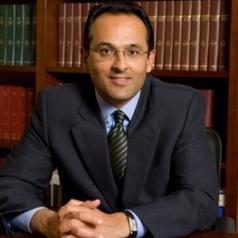
Sanjay Saint
Chief of Medicine, University of Michigan
Sanjay Saint, MD, MPH, is the George Dock Professor of Internal Medicine at the University of Michigan, the Director of the VA/University of Michigan Patient Safety Enhancement Program and the Chief of Medicine at the Ann Arbor VA Medical Center. His research focuses on preventing healthcare-associated infection, implementation science, and medical decision-making. He has authored over 275 peer-reviewed papers with nearly 100 appearing in the New England Journal of Medicine, JAMA, Lancet or the Annals of Internal Medicine. He is a Special Correspondent to the New England Journal of Medicine, an editorial board member of the Annals of Internal Medicine, and an elected member of the American Society for Clinical Investigation (ASCI). He received the Mark Wolcott Award for Clinical Excellence as the Department of Veterans Affairs National Physician of the Year. He is also the lead author of a book recently published by Oxford University Press entitled: “Preventing Hospital Infections: Real-World Problems, Realistic Solutions.”
He received his Medical Doctorate from UCLA, completed a medical residency and chief residency at the University of California at San Francisco (UCSF), and obtained a Masters in Public Health (as a Robert Wood Johnson Clinical Scholar) from the University of Washington in Seattle. He has been a visiting professor at over 60 universities and hospitals in the United States, Europe, and Japan, and has active research studies underway with investigators in Switzerland, Italy, Japan, Australia, and Thailand.
Less ![]()

Sanjay Sisodiya
Professor of Neurology, UCL
Undergraduate training in Cambridge, clinical training at Guys, with postgraduate clinical training in London, in the Department of Neurology at Oxford, and the National Hospital for Neurology and Neurosurgery, Queen Square. Currently Professor of Neurology, UCL Queen Square Institute of Neurology, and Honorary Consultant Neurologist at the National Hospital for Neurology and Neurosurgery.
Less ![]()
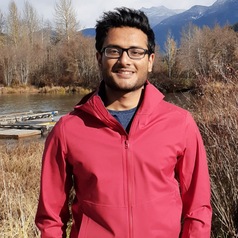
Sanjith Gopalakrishnan
Assistant Professor of Operations Management, McGill University
Sanjith is an Assistant Professor of Operations Management at the Desautels Faculty of Management, McGill University. His research focuses on exploring sustainable pathways for businesses and organizations to tackle global challenges, including climate change and technological transitions.
Less ![]()
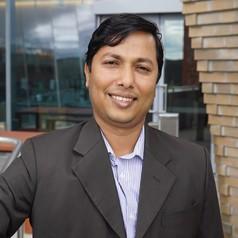
Sanjoy Paul
Associate Professor, UTS Business School, University of Technology Sydney
Dr Sanjoy Paul is an Associate Professor in the UTS Business School, University of Technology Sydney, who works on supply chain risk and resilience, and in particular, on recovery modelling using mathematical model and optimisation.
Sanjoy’s research interests include also sustainable supply chain management, supply chain resilience, supply chain pricing and traceability, applied operations research, modelling and simulation, and intelligent decision making.
His work has particular application to global supply chain interruptions, for example those experienced during pandemics, and he is now developing several supply chain recovery models that could be used by business during and after the COVID-19 pandemic. His latest research can be found in the following google scholar link.
https://scholar.google.com/citations?user=yD2kj5wAAAAJ&hl=en
Sanjoy has published more than 130 articles in top-tier journals and conferences including the European Journal of Operational Research, Transportation Research Part E: Logistics and Transportation Review, and the International Journal of Production Economics, among many others. He is also a guest editor, editorial board member, and active reviewer of many reputed journals. Sanjoy has been successful to secure external grants from the Department of Defence, Department of Industry, Science, Energy and Resources, and Department of Foreign Affairs and Trade and from other industry partners.
Sanjoy has received several awards in his career, including ASOR Rising Star Award, Excellence in Early Career Research Award from UTS Business School, the Stephen Fester prize for most outstanding thesis from UNSW, high impact publications awards for publishing articles in top-tier journals, and several university scholarships for outstanding results at undergraduate and postgraduate levels. Based on his citation records, he was included in the top 2% of scientists (based on the single year in 2020, 2021 and 2022) in author databases of standardized citation indicators.
Less ![]()
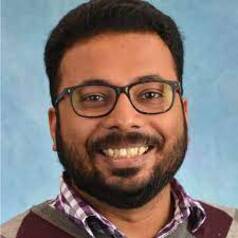
Sankaraleengam Alagapan
Research Scientist in Electrical and Computer Engineering, Georgia Institute of Technology
I am a Research Faculty member at Georgia Institute of Technology. I work in the Structured Information for Precision Neuroengineering Lab (SIPLab) within the School of Electrical and Computer Engineering. I work at the intersection of neurotechnology and psychiatry with the aim of developing brain stimulation therapies for psychiatric disorders.
I received my PhD in Biomedical Engineering from the University of Florida. Prior to joining Georgia Tech, I was a post-doctoral research associate at the University of North Carolina at Chapel Hill, working in the Carolina Center for Neurostimulation (spun off from Frohlich Lab). I enjoy photography, travel (to a certain extent) and (re)learning history.
Less ![]()
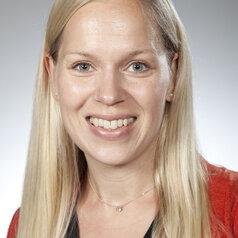
Sanna Malinen
Professor of Organisational Behaviour, University of Canterbury
Sanna Malinen is a Professor of Organisational Behaviour and works at University of Canterbury’s Business School. She draws from social and organisational psychological principles to support workplaces and communities where people can thrive. Some of her current research projects focus on workplace wellbeing, disaster management, and organisational resilience.
Less ![]()
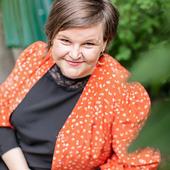
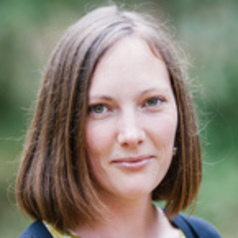
Sanne Weber
PhD Candidate, Centre for Trust, Peace and Social Relations, Coventry University
Sanne Weber is a PhD candidate and Research Assistant at the Centre for Trust, Peace and Social Relations (Coventry University). Her main research interest is transitional justice and gender.
She is particularly interested in analysing how conflict affects gender relations, whether and how transitional justice mechanisms are capable of addressing and transforming gendered and other structural inequalities, and how transitional justice mechanisms can better respond to the needs and demands of survivors of conflict. She is currently undertaking fieldwork in Colombia, analysing the gendered dynamics of Colombia’s land restitution and reparation process.
Previously, Sanne worked for over five years as a researcher, gender policy advisor and coordinator for human rights organisations in Guatemala on projects related to gender-sensitive transitional justice and the prevention of violence against women.
Sanne holds MAs in the Theory and Practice of Human Rights from the University of Essex and History of International Relations from Utrecht University.
Less ![]()
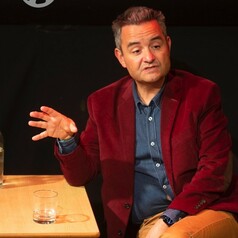
Santiago Fouz Hernández
Professor in the School of Modern Languages and Cultures, Durham University
Santiago Fouz Hernández is Professor of Iberian Studies and Film Studies at Durham University. His research explores issues of gender, the body, sexualities and national identities in contemporary Spanish cinema. He is the author of Cuerpos de cine (Bellaterra, 2013), co-author (with Alfredo Martínez-Expósito) of Live Flesh: The Male Body in Contemporary Spanish Cinema (I. B. Tauris, 2007) and editor of five books including Spanish Erotic Cinema (Edinburgh University Press, 2017) and Mysterious Skin. Male Bodies in Contemporary Cinema (I. B. Tauris, 2009).
Since 2015 he coordinates (with Betty Bigas) ‘The Bigas Luna Tribute’, a series of retrospectives, exhibitions and other events to help promote internationally the work of the late Spanish filmmaker. He also produces and co-presents the podcast 'El legado cinematográfico de Bigas Luna', title of the book he edited in 2020 for Tirant lo Blanch publishers. He is currently completing a monograph on filmmaker Bigas Luna for Manchester University Press.
Less ![]()
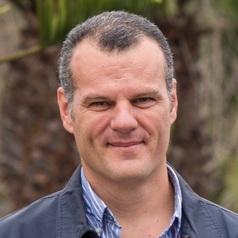
Santiago Melián González
Chair professor, Universidad de Las Palmas de Gran Canaria
Santiago Melián González es catedrático de universidad en la Universidad de Las Palmas de Gran Canaria. Imparte materias relacionadas con la dirección de recursos humanos y con el aspecto estratégico de esta función directiva. Su labor investigadora también se centra principalmente en la dirección de recursos humanos, el trabajo y en su interacción con la tecnología, con especial énfasis en el campo turístico. A su vez, también investiga las actitudes y el comportamiento del consumidor en lo concerniente al uso de la tecnología. Fruto de ello ha publicado numerosos artículos en las revistas más importantes del ámbito turístico y cuenta con tres sexenios de investigación reconocidos.
Less ![]()

Santina Contreras
Assistant Professor of Urban Planning and Spatial Analysis, University of Southern California
Less ![]()
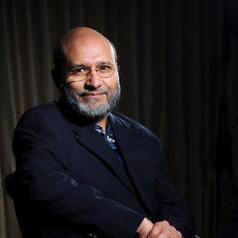
Santosh Mehrotra
Visiting Professor at the Centre for Development Studies, University of Bath
Santosh Mehrotra is Visiting Professor, Centre for Development Studies, University of Bath, UK and ex-Prof (Econ) and Chair of the Centre for Informal Sector and Labour, Jawaharlal Nehru University, New Delhi.
After an MA (Econ) from New School for Social Research, New York, and Phd (Econs), Cambridge University (1985), Santosh spent 15 years with the UN (1991-2006) in research positions, heading UNICEF’s global research programme on social/economic policy at the Innocenti Research Centre, Florence, and as chief economist of the global Human Development Report New York. He returned to India to head the Rural Development Division and Development Policy Division of Planning Commission (2006-09), and was lead author of several chapters of the 11th & 12th Five Year Plans of India, and the India Human Development Report.
He was also the Director General (2009-14) of the National Institute of Labour Economics Research, Planning Commission, in the rank of Secretary to the Government of India. He advises the current NITI, the Ministry of Labour, and the Ministry of Skill Development.
His writings have been translated into Hindi, Spanish, French, Russian, German and Portuguese.
Less ![]()

Santosh Kumar Gautam
Associate Professor of Development and Global Health Economics, University of Notre Dame
Less ![]()
- Market Data





















